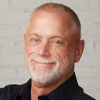
A long-term survivor and activist, Tranisha was born with HIV in 1990. She’s been a peer advocate for almost five years at BABES-Network YWCA, a peer-led supportive program for people living with HIV. She’s been a fierce advocate for women, transwomen, and their families—and a member of its family even longer. Her mission is to advocate on behalf of women and youth, and to help drive change in institutional systems that do more harm than good. She hopes to one day educate and implement policies that support comprehensive sexual health models for marginalized communities and adults. Tranisha is a member of Seattle’s defeatHIV CAB, which builds community involvement in order to advance clinical research into a potential gene therapy cure for HIV. For two years starting in 2013 she was a National Minority AIDS Council (NMAC) youth scholar. She currently serves on Positive Women’s Network-USA’s (PWN-USA) board of directors.
What do you see as some of the biggest challenges facing youth today, especially young women and trans women?
The same issues that people living with HIV face—but through a different lens. Although isolation and adherence problems are huge factors, what’s greatly holding back this group is the misinformation and lack of exposure to comprehensive sexual health resources. Young folks, especially queer and trans youth of color, need to be included in education efforts throughout their adolescent years and beyond, and represented in a way that reflects their lived experiences.
Where do you see yourself five years from now?
Wonderful question! I am very excited about the opportunity to spend some time in college at first, and figuring that very thing out. I know what I want to do more of, and that’s education and outreach! I would also love to see myself living in the South, preferably in New Orleans, and working for an organization that provides services such as supporting communities in rural areas, because we know those are the ones who are disproportionately impacted by HIV/AIDS; and intersectional issues like reproductive and racial justice.
What would you say to a young person who just tested positive?
I wouldn’t undermine whatever they need to feel in that moment—even with the advances of science and treatment today, it’s still a painful thing to go through. Most importantly, I would ask if they have someone who they can confide in about this, because no one should go through that initial shock feeling alone. I would let them know there are people who have been where they’re at to talk to—when they’re ready.
How has being a long-term survivor helped inform the work that you do?
Well, as someone who doesn’t know a life without HIV, I think it’s helped inform the work I do, by understanding the complex layers of how HIV can impact someone’s life. I also believe in working with patience and compassion, because we’re going on this journey together—and we need every person to see they have more life to live, even after a diagnosis.
Anything else you’d like to say?
We as an HIV community need to do better at not leaving anyone behind, no matter what. To know that, if you’re not connected to a young person, no matter their status, that should change—because young people have a lot to teach and show us. They also need to be part of our movement family, and not all young folks have safe access to reach out on their own.


